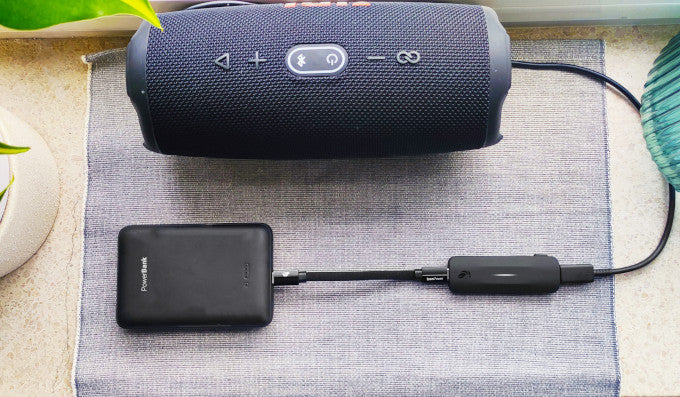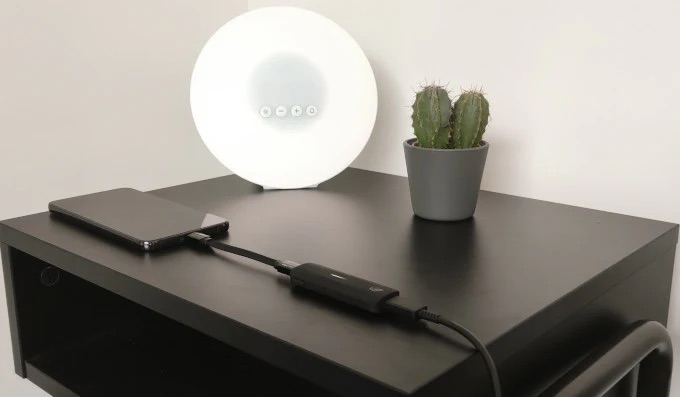
(Image: DenPhoto/Adobe Stock)
Every year, billions of smartphones are tossed aside, often not because they’re broken but because their batteries no longer hold a charge. Lithium-ion batteries, which power most of our portable tech, degrade over time. When they do, most of us are left with one option: buy a new device.
“Electronics has become like the fashion industry,” said Jardo Stammeshaus, founder of Liion Power, a sustainability-focused smart charging technology startup. “Everyone wants the newest iPhone every season. It’s so deeply embedded in how we live that people don’t think twice about it.”
This is a largely overlooked contributor to the growing global e-waste crisis. The world generated more than 62 million metric tons of electronic waste last year, according to the 2024 Global E-Waste Monitor. Although personal devices like smartphones, laptops and routers are a small portion of that (less than 10 percent), smartphones still have a significant environmental impact. They hold a high concentration of precious metals like gold, silver and palladium as well as hazardous substances like lead and mercury in older models.
“If people realize this also wastes materials and money, that it’s not efficient, then it becomes easier to say, ‘Hey, I want a phone that lasts four years instead of buying a new one every year,’” Stammeshaus said. “But for that to happen, phones need to be built to last. And right now, they’re not.”
Lithium-ion batteries degrade faster when charged to 100 percent, when exposed to high heat, or when left plugged in overnight. “People are noticing,” Stammeshaus said. “If Tesla doesn’t recommend charging to 100 percent all the time, why are we doing that with our phones? That awareness is growing.”
Stammeshaus has tried a variety of methods to extend his phone’s battery life. “I used to use a timer to avoid overcharging overnight, a long cable with an old charger to slow things down, and I even had an app that set off an alarm when my phone hit 90 percent so I could unplug it,” Stammeshaus said. “I realized I was treating my battery like it was my baby, and that just didn’t make sense to me. It should be automatic. That’s really where the idea for Leo came from.”
Leo is a tiny adapter created by Liion Power that automatically optimizes charging, making it easier for people to take care of their devices. It works without an app and does not require any prior knowledge to use.
“We built a device that does all the macro-managing for you,” Stammeshaus said. “It times when to charge, avoids full charges and charges slower when possible — everything you’d do manually to preserve battery health, but built into one simple, smart device.”

All users have to do is plug their charger into one side of the adapter and their device into the other side. It works with essentially any device that charges with a USB cable, from phones and headphones to speakers and even power tools.
“Big phone companies have been resisting this kind of battery optimization for over a decade,” Stammeshaus said. “There were apps that could help with smart charging, but they got removed from app stores, required root access, or were otherwise made unusable. They could have implemented this 10 or 15 years ago, but they didn’t. Now they’re slowly starting to adopt similar features and framing them as innovative, but it’s not new. The pressure is coming from consumers.”
The ease of use may be why Leo has over 5,000 units already in use across more than 50 countries, with particularly strong adoption in sustainability-minded places like the Netherlands, Germany and California.
“There aren’t that many competitors doing exactly what we’re doing. Some startups are working on similar ideas, but what sets us apart is that the intelligence is built into the device itself, not just the app,“ Stammeshaus said. ”We do have an app for changing settings or updating the algorithm, and those updates can be pushed instantly to users in any of the 50 countries where Leo is being used. But at its core, Leo is a smart, standalone device … that works right out of the box, without needing to rely on a phone to function.”
Liion Power ran its own lab tests with the Leo adapter for over a year, cycling lithium-ion batteries twice a day, charging and discharging them with and without the Leo adapter.
“Depending on the scenario, we saw up to 63 percent improvement in battery lifespan,” Stammeshaus said. “We generally say ‘up to 50 percent’ because it’s easier to communicate, but the data is clear.”
The startup’s wider ambition is to show that consumer tools can drive systemic change, starting with the humble phone charger.
“Big companies aren’t going to lead this. They make money selling new devices. That’s why this change has to come from outside, from startups, from consumers,” Stammeshaus said. “A product like Leo gives that power back to the consumer, without waiting for companies to change. And ultimately, it’s the customer who has the most power. If they start to change, the system will follow, but it will take time.”

The European Union’s recent move to standardize USB-C charging ports across mobile devices is already nudging the industry toward more universal charging. Leo is designed with this future in mind. It’s equipped with USB-C connectors, but it is also compatible with nearly any USB charging option with the appropriate cables or connectors, including Apple’s Lightning connector and MicroUSB devices.
“Different plugs only ever served to drive extra profits," Stammeshaus said. “With USB-C becoming the norm, it makes sense to have one smart adapter that works for everything.”
Leo was a 2025 award winner at the annual CES Innovation Awards, one of the biggest consumer technology design and engineering competitions, demonstrating that emphasizing sustainability doesn’t mean stifling innovation.
“We shouldn’t frame sustainability as needing to consume less or live with less value,” Stammeshaus said. “In fact, a sustainable society can offer more value in the long run. Sustainability isn’t a left or right issue. It’s not about being progressive or conservative, it’s just about being smart and efficient. And honestly, why wouldn’t you want that?”

Abha Malpani Naismith is a writer and communications professional who works towards helping businesses grow in Dubai. She is a strong believer in the triple bottom line and keen to make a difference. She is also a new mum, trying to work out a balance between thriving at work and being a mum. In her endeavor to do that, she founded the Working Mums Club, a newsletter for mums who want to build better careers and be better mums.














